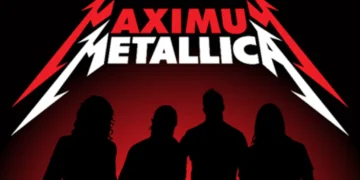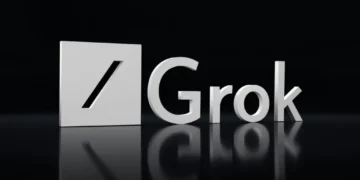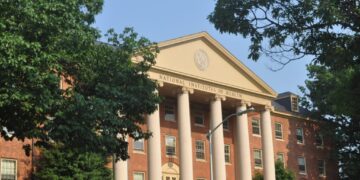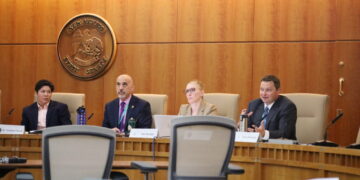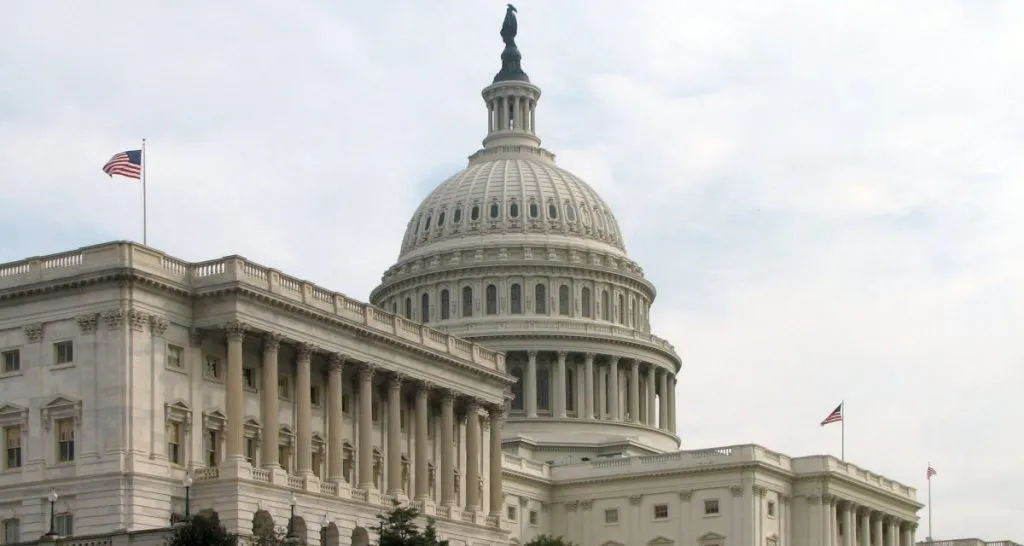
The Senate side of the U.S. Capitol. Photo Credit: Scrumshus
Ahead of a July 18th deadline, the Senate is preparing to vote on a rescissions package that would claw back $535 million in annual public broadcasting funding.
Update (7/15): After this piece was published, the Senate voted 51-50 to advance the rescissions package, which will be debated ahead of a final vote and then, assuming it passes, a second House vote on the modified measure. Below is our initial coverage.
Said deadline will mark 40 days since the House approved $9.4 billion in cuts, which, one last-minute modification later, now involve approximately $9 billion in spending. The reduction resulted from the exclusion of $400 million destined for the President’s Emergency Plan for AIDS Relief (PEPFAR).
Running with the point – which logic suggests will help the measure along – Senate Majority Leader John Thune (R-SD) told reporters that he hoped the opposite chamber would accept the slightly smaller “substitute” proposal.
As for the all-important Senate vote itself, a procedural vote is reportedly expected to take place today. Per the Washington Post, the package has the support necessary to pass in the Senate – though as mentioned, another House vote would have to follow due to the modification.
(On the Senate support: Senator Mike Rounds, R-SD, this afternoon disclosed that he would back the cuts. “We wanted to make sure tribal broadcast services in South Dakota continued to operate which provide potentially lifesaving emergency alerts,” he explained. “We worked with the Trump administration to find Green New Deal money that could be reallocated to continue grants to tribal radio stations without interruption.”)
Shifting from the multifaceted legislative process and to the rescissions themselves, the package would specifically nix federal payments to the Corporation for Public Broadcasting. The CPB, in turn, distributes grants to NPR, PBS, and other local public stations.
NPR and PBS are front and center in the debate surrounding the package; higher-ups, celebrities, and musicians including Reba McEntire have publicly opposed the rescissions. However, the former organization receives only 2% of its annual budget directly from federal grants, compared to 15% for the latter, according to the New York Times.
(Some in the media are placing the rescissions’ public-broadcasting cuts at north of $1 billion; technically, they would revoke $535 million in annual federal funding across two years.)
That said, PBS and NPR local member stations could feel the pinch; as many as 180 such stations may close, per the Times, with up to 30% of nationwide listeners losing access to NPR.
On the other side of this coin, there is, of course, no shortage of news and entertainment options available via the internet today – including a wide variety of digital NPR and PBS content. And at the top level, data shows that the public isn’t all that supportive of federal funding for the entities.
Feature Story, Legislative, Television, Traditional Radio
This post was originally authored and published by Dylan Smith Digital Music News via RSS Feed. Join today to get your news feed on Nationwide Report®.

